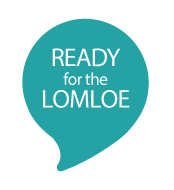LOMLOE establishes guidelines for learning objectives and contents at three levels in order to lay a foundation for education in the 21st century
The LOMLOE is intended to align the Spanish Education system with the declared aims of the EU and UNESCO for developing an educational model to meet the challenges of education in the 21st century and in particular to encourage competential, autonomous, meaningful and reflective learning across all subjects.
THE LOMLOE'S KEY FOCUS AREAS

Children's rights

Gender equality

Inclusive and personalised education
Children's rights
Gender equality
Inclusive and personalised education

Education in sustainable development and global citizenship

Learning in a digital world
Education in sustainable development and global citizenship
Learning in a digital world
THE LOMLOE AIMS TO DEVELOP 8 KEY COMPETENCES
This involves activating, in a conscious manner, knowledge, skills and attitudes that enable the understanding, interpretation and critical evaluation of all types of messages – signed, written, audio-visual or multimodal – and communicating with others in a cooperative, respectful, creative and ethical way.
Our courses are structured in a way that enhances specific language competence development in every section, while the language learning process itself facilitates the other key competences.
Using languages in an efficient and appropriate way for learning and communication, while recognizing and respecting different linguistic expressions.
Learning a foreign language naturally develops plurilingual and intercultural awareness.
This competence is based on understanding the world using different scientific methods, mathematical thinking and technology to transform our surroundings in a respectful and sustainable way.
Through carefully selected topics and texts, our courses incorporate education in Science & STEM, allowing for intercurricular work related to these areas.
The digital competence involves using digital technologies in a secure, healthy, sustainable, critical and responsible way for learning, working and participating in society.
A wide range of blended materials specifically tailored for teaching develop the use of technology for learning in the classroom, as well as at home, in a critical and healthy way.
Learning to learn involves the ability to reflect on your own learning, and to collaborate with others in a constructive way, promoting personal growth through lifelong learning and social skills.
A focus on productive and interactive activities, present in all our teaching materials, develops skills in communication, mediation, collaboration and self-reflection, and enables meaningful learning.
This competence encourages acting as a responsible citizen and participating fully in social and civil life, based on a critical understanding of broad social, economic, judicial and political structures and concepts. It includes knowledge of world events and a commitment to sustainability and global citizenship.
A careful selection of topics and activities in all our courses help students acquire relevant 21st-century skills and develop awareness of key issues related to being a world citizen.
This involves learning to analyse circumstances and ideas critically and to act accordingly in a creative and constructive way, and working with others to learn to take risks and reach decisions that affect your learning.
Our courses contain tools like reviews and self-assessment charts that encourage reflective learning as well as personal initiative – students learn to think about and take responsibility for their learning.
This competence encourages understanding and respecting how different cultures express and communicate ideas.
All topics in our courses are selected to promote an awareness of, and respect for, diversity, gender equality, respect for different cultures and the need for global sustainability.
All Burlington Books courses facilitate the development of the key competences for ESO and Bachillerato in a natural way.
FOR FOREIGN LANGUAGES, THE LOMLOE DEFINES 6 SPECIFIC COMPETENCES
1
Linguistic comprehension // To understand and interpret the general sense as well as more specific details of texts expressed clearly in standard language, while making use of diverse strategies to respond to concrete communication needs.
2
Linguistic production // To produce simple, clear, structured original oral and written texts related to everyday events, personal experiences and matters of general interest in a creative, appropriate and coherent way.
3
Interaction // To interact with other people, with increasing autonomy, using strategies of cooperation and employing analogue and digital resources, to respond to concrete communicative situations in a respectful manner.
4
Mediation // To mediate in one or more languages, using strategies and knowledge, to explain concepts, simplify messages, and transmit information in a clear, efficient and responsible way.
5
Plurilingualism // To amplify and use personal linguistic resources related to different languages, reflecting in a clear way on the functioning of language and becoming aware of one’s own linguistic capacity, to improve the ability to respond in a given communicative situation.
6
Cultural competence // To value critically and adapt to linguistic, cultural and artistic diversity, identifying and sharing the similarities as well as the differences between languages and cultures, and to empathise and be respectful in intercultural situations.
THE LOMLOE ALSO DEFINES THE BASIC CONTENTS FOR LANGUAGES, DIVIDED INTO 3 BLOCKS
Communication
Specific language requirements: communicative functions, linguistic and lexical needs; skills development and pronunciation, etc
Plurilingualism
Relating and comparing lexical and linguistic contents to one’s own language to develop learning and communication strategies
Interculturality
Using language as a means of communication between different cultures and societies to appreciate and learn from socio-cultural diversity
Our materials cover all the basic contents for ESO and Bachillerato, and we are committed to providing you with any additional materials and resources you might need to adapt your teaching to the LOMLOE in a simple and practical way.
AT BURLINGTON BOOKS WE ARE READY FOR THE LOMLOE
As the PUBLISHER that CARES, we will ALWAYS be at your side

